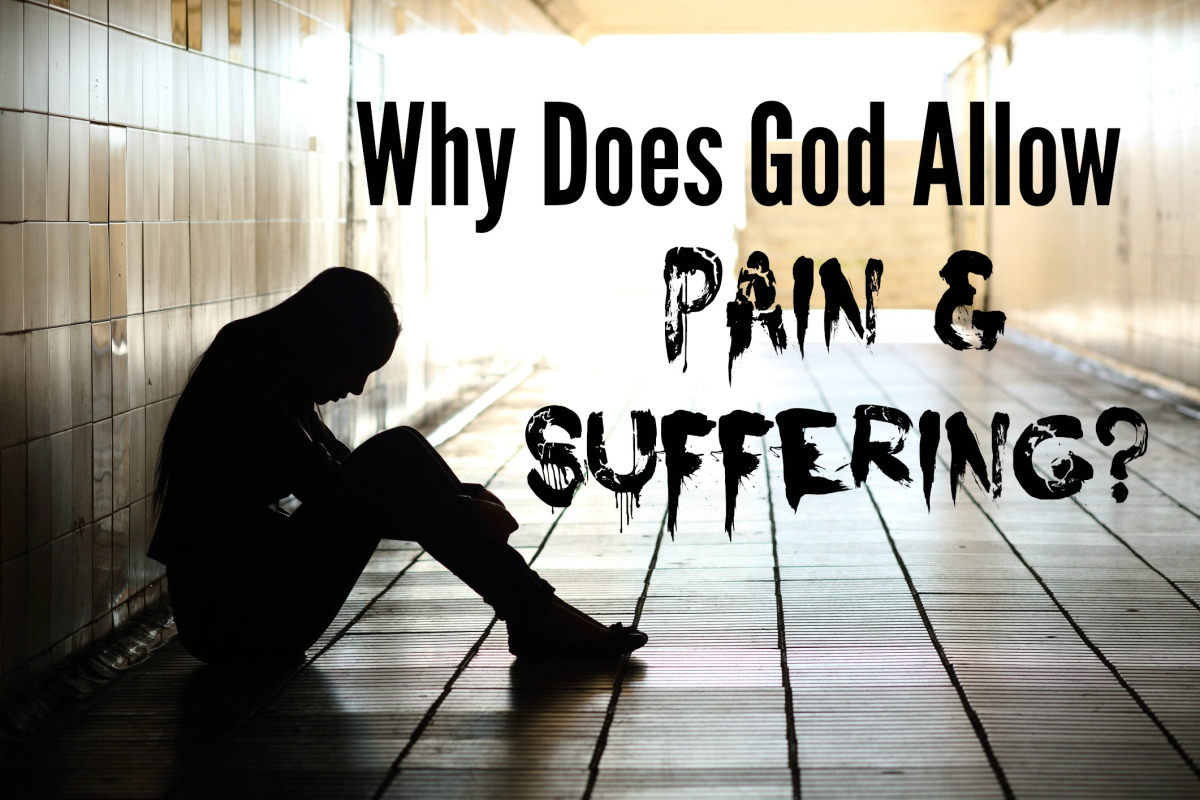Why does God allow suffering? This question has been asked by countless individuals throughout history, across cultures, and in various religions. The existence of suffering is a universal experience that impacts everyone at some point in their lives. Understanding the reasons behind suffering can provide a sense of clarity and purpose in the face of adversity. In this article, we will explore the different perspectives on suffering, the theological implications, and how individuals can find meaning and strength amidst their trials.
Many people grapple with their faith when confronted with suffering, leading to a crisis of belief. The feeling of abandonment or confusion when bad things happen can shake the very foundation of one’s spirituality. However, delving into the reasons behind suffering can offer insights that may not only enhance one’s faith but also provide comfort and hope. This exploration is essential for cultivating resilience and understanding the deeper layers of human experience.
Throughout this article, we will examine various philosophical and theological perspectives on suffering, explore how different cultures interpret it, and discuss practical ways to cope with pain and hardship. By the end, we hope to shed light on this profound topic and encourage readers to reflect on their own beliefs and experiences related to suffering.
Table of Contents
- Understanding Suffering: A Philosophical Perspective
- Theological Insights on Suffering
- Cultural Interpretations of Suffering
- The Role of Free Will in Human Suffering
- Suffering as a Path to Growth and Strength
- Finding Meaning in Suffering
- Practical Ways to Cope with Suffering
- Conclusion: Embracing the Journey Through Suffering
Understanding Suffering: A Philosophical Perspective
Suffering has been a topic of philosophical debate for centuries. Philosophers such as Friedrich Nietzsche and Arthur Schopenhauer have explored the nature of suffering and its implications for human existence. The existential crisis often arises when individuals confront their pain and question the meaning behind their suffering.
The Nature of Suffering
Philosophically, suffering can be seen as an intrinsic part of life. It is often argued that without suffering, we would not fully appreciate joy and happiness. This duality is crucial in understanding the human experience, as it allows individuals to reflect on their lives and grow through adversity.
Theological Insights on Suffering
Many religious traditions offer unique perspectives on suffering. From a Christian viewpoint, suffering can be seen as a test of faith or a means of drawing closer to God. In Islam, suffering is often viewed as a way to cleanse one’s sins and is part of Allah’s divine plan.
God’s Sovereignty and Human Suffering
The belief in a sovereign God raises questions about the purpose of suffering. If God is all-powerful and all-knowing, why does He allow suffering? Various theological arguments suggest that suffering is not a reflection of God’s absence but rather a part of His mysterious plan for humanity.
Cultural Interpretations of Suffering
Different cultures interpret suffering in diverse ways. In Eastern philosophies, such as Buddhism, suffering is seen as an inherent part of life and a crucial element of the human condition. The Four Noble Truths encapsulate this understanding, emphasizing the need to overcome suffering through enlightenment.
Western vs. Eastern Perspectives
- Western thought often emphasizes individualism and personal responsibility in overcoming suffering.
- Eastern philosophies tend to focus on collective understanding and transcendence of suffering.
The Role of Free Will in Human Suffering
The concept of free will plays a significant role in discussions about suffering. Many believe that humans have the freedom to make choices, which can lead to both good and bad outcomes. This freedom is essential in understanding why suffering exists in the world.
Consequences of Free Will
When individuals misuse their free will, it can result in suffering for themselves and others. This perspective suggests that suffering is a consequence of human actions rather than divine punishment.
Suffering as a Path to Growth and Strength
Many individuals report experiencing personal growth following periods of suffering. This growth can manifest as increased empathy, resilience, and a deeper understanding of oneself and others.
Transformative Power of Suffering
- Suffering can lead to greater compassion for others.
- It can foster a sense of community and shared experience.
- Suffering often encourages individuals to seek meaning and purpose in their lives.
Finding Meaning in Suffering
Viktor Frankl, a Holocaust survivor and psychiatrist, famously wrote about finding meaning in suffering. His experiences led him to conclude that even in the most challenging circumstances, individuals could find purpose and meaning.
Existential Meaning and Suffering
Frankl’s perspective emphasizes the importance of personal responsibility in finding meaning through suffering. By taking ownership of one’s response to pain, individuals can transform their suffering into an opportunity for growth.
Practical Ways to Cope with Suffering
While suffering is an inevitable part of life, there are several strategies individuals can employ to cope with pain and adversity:
- Practice mindfulness and meditation to cultivate a sense of peace.
- Engage in physical activity to release endorphins and improve mood.
- Seek support from friends, family, or professional counselors.
- Explore creative outlets such as writing, art, or music to express feelings.
Conclusion: Embracing the Journey Through Suffering
In conclusion, the question of why God allows suffering is complex and multi-faceted. By exploring various philosophical, theological, and cultural perspectives, we can gain a deeper understanding of the role suffering plays in our lives. Embracing suffering as a part of the human experience can ultimately lead to personal growth and a stronger connection with others.
We invite you to share your thoughts on this topic in the comments below or explore other articles on our site to deepen your understanding of suffering and resilience.


